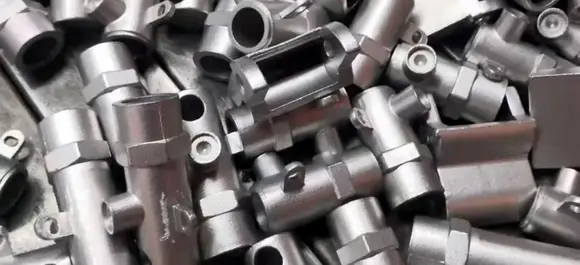Mobile:+86-311-808-126-83
Email:info@ydcastings.com
Compact Water Pump Impeller for Efficient Fluid Movement System
Understanding the Small Water Pump Impeller Design, Function, and Applications
Water pumps are essential devices in various industries and applications, facilitating the movement of water from one location to another. Among the critical components of any water pump is the impeller, which plays a vital role in determining the efficiency and effectiveness of the pump. In this article, we will explore the small water pump impeller, including its design, function, and applications.
Design of Small Water Pump Impellers
The impeller is the rotating component of a pump that transfers energy from the motor to the fluid. In small water pumps, impellers come in various designs, each tailored to meet specific operational requirements. Typically, small water pump impellers are either open, semi-open, or closed.
1. Open Impellers These consist of blades without a shroud, allowing for easy passage of solids and debris. They are often used in applications where the pumped fluid may contain suspended particles.
2. Semi-Open Impellers Featuring a partial shroud, semi-open impellers offer a balance between efficiency and the ability to handle solids. They are often found in environments where a moderate level of debris is present.
3. Closed Impellers These have blades that are enclosed within a shroud. Closed impellers are known for their efficiency and are typically used in clean water applications where maximum flow and pressure are required.
Choosing the right impeller design is crucial for the intended application, as it affects the pump's overall performance, energy consumption, and maintenance requirements.
Function of the Impeller
The primary function of the impeller in a small water pump is to create fluid flow. As the impeller rotates, it imparts kinetic energy to the water, causing it to move through the pump and into the desired outlet. This energy transfer creates a pressure differential, allowing the pump to draw water from a source, such as a well or a reservoir.
The impeller's design also influences the pump's head, which refers to the height to which the pump can raise water. A well-designed impeller can optimize the pump's efficiency, ensuring that it operates with minimal energy consumption while delivering maximum flow rates.
Importance of Material Selection
small water pump impeller

The materials used in the construction of small water pump impellers significantly affect their lifespan and performance. Common materials include
- Plastic Lightweight and resistant to corrosion, plastic impellers are suitable for applications with non-abrasive fluids. They are often used in residential applications, such as garden fountains and small fish ponds.
- Stainless Steel Known for its strength and durability, stainless steel is a popular choice for impellers used in industrial settings. It offers excellent resistance to corrosion and wear, making it ideal for pumping abrasive or corrosive fluids.
- Bronze This material is often used for impellers in applications requiring high strength and corrosion resistance
. Bronze impellers are commonly found in marine and agricultural settings.Applications of Small Water Pump Impellers
Small water pump impellers are used in a myriad of applications across different sectors
1. Agriculture Irrigation is a critical aspect of modern agriculture. Small water pumps equipped with efficient impellers ensure that crops receive adequate water supply, thereby enhancing yield and productivity.
2. Aquaculture In fish farming, maintaining optimal water circulation is essential for the health of aquatic species. Small water pumps with suitable impellers help in oxygenating and circulating water, promoting healthier ecosystems.
3. Residential Use Garden ponds, fountains, and swimming pools often utilize small water pumps with specialized impellers to maintain water clarity and circulation.
4. Construction Dewatering during construction activities often employs small water pumps to remove excess water from sites, ensuring safe working conditions. The impeller plays a crucial role in moving large volumes of water efficiently.
Conclusion
The small water pump impeller is a critical component that influences pump performance, efficiency, and durability. With various designs and materials available, selecting the appropriate impeller is essential for meeting the demands of specific applications. Whether in agriculture, aquaculture, residential settings, or construction, the effective functioning of a small water pump relies heavily on the capabilities of its impeller. Understanding these components can lead to better maintenance practices, improved energy efficiency, and enhanced overall productivity in water management systems.
-
Why Should You Invest in Superior Pump Castings for Your Equipment?NewsJun.09,2025
-
Unlock Performance Potential with Stainless Impellers and Aluminum End CapsNewsJun.09,2025
-
Revolutionize Your Machinery with Superior Cast Iron and Aluminum ComponentsNewsJun.09,2025
-
Revolutionize Fluid Dynamics with Premium Pump ComponentsNewsJun.09,2025
-
Optimizing Industrial Systems with Essential Valve ComponentsNewsJun.09,2025
-
Elevate Grid Efficiency with High-Precision Power CastingsNewsJun.09,2025











